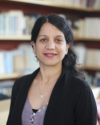- Autumn 2024
Syllabus Description:
POL S 201: Introduction to Political Theory
Insiders, Outsiders and the Perspective of Political Criticism
Fall 2024
Tu, Th 10:00-11:20 am
Professor: Noga Rotem
Office hours: Th 1-3 pm, 125 GWN
Course description:
Who is best situated to theorize about and criticize a society? an insider or an outsider? Can a foreigner or a newcomer be a good lawgiver in a society that they are not intimately familiar with? Does being an exile rob one of a perspective? Or does distance illuminate flaws in society that one would not have noticed otherwise? This selective survey of major texts in the history of western political thought, will explore these questions and others, focusing on the role of the political theorist as a spectator and as a critic of society. How do different thinkers establish their impartiality? Does it require abandoning one’s standpoint? Is it identical to being a “voice from nowhere”?
Most of the thinkers that we will read negotiated at least two identities, two loyalties, or two places, with one foot in and one foot outside of the political context about which they wrote. To give a few examples: Aristotle was a foreigner in Athens, Machiavelli an exile who was banned from political office in Florence, Arendt was a stateless exile who fled Nazi Germany and wrote most of her political works after migrating to the US. Fanon and Beauvoir were both foreigners in their own societies—both describe in their writings the immense pain and psychological damage that result from their striving to be included—to be insiders—in societies that nevertheless forcefully and violently rejected and excluded them because of their race or gender.
How did the doubling of place and identity of all these thinkers affect their perspective and their political insight? And what do they have to say about the conditions that enable political critique? In sum: what are the worldly (i.e., cultural, institutional, economic, political) conditions of political theory?
This is a reading and writing intensive course. Students are responsible for all of the assigned reading as well as active participation in discussion sections, two short papers, two in-class quizzes, and a final exam.
Required texts
The following texts are available at the University bookstore. Assigned readings not included in the books below will be accessible on Canvas.
For the required texts, please purchase or borrow from the library the exact editions that are specified here. Other editions/translations will NOT be acceptable.
Texts for purchase are:
- Plato, Republic, Hacket Publishing, 2004. ISBN: 0872207366
- Niccolo Machiavelli, The Prince, Cambridge University Press, 2019, 2nd ISBN: 1316509265
- Thomas Hobbes, Leviathan, Penguin Classics, 2017. ISBN: 0141395095
For background material or help with the sources please do not just randomly search the web. There are many confusing and misleading websites. Come to office hours if you are having trouble with the readings, if you want more information, or are otherwise interested in secondary material. A good place to start can be the relevant entries in the Stanford Encyclopedia of Philosophy, available online. If you are interested in consulting some optional secondary literature to help you with the readings, the following are some great scholarly overviews of the history and development of political thought:
- Sheldon Wolin, Politics and Vision
- Alan Ryan, On Politics
- William Connolly, Political Theory and Modernity
Assignments and grading:
Short piece – Political Friendship: 15%
Midterm exam (in-class): 30%
Final exam (in-class): 30%
Reading Quizzes: 10% (5% each)
Discussion section attendance and participation: 15%
